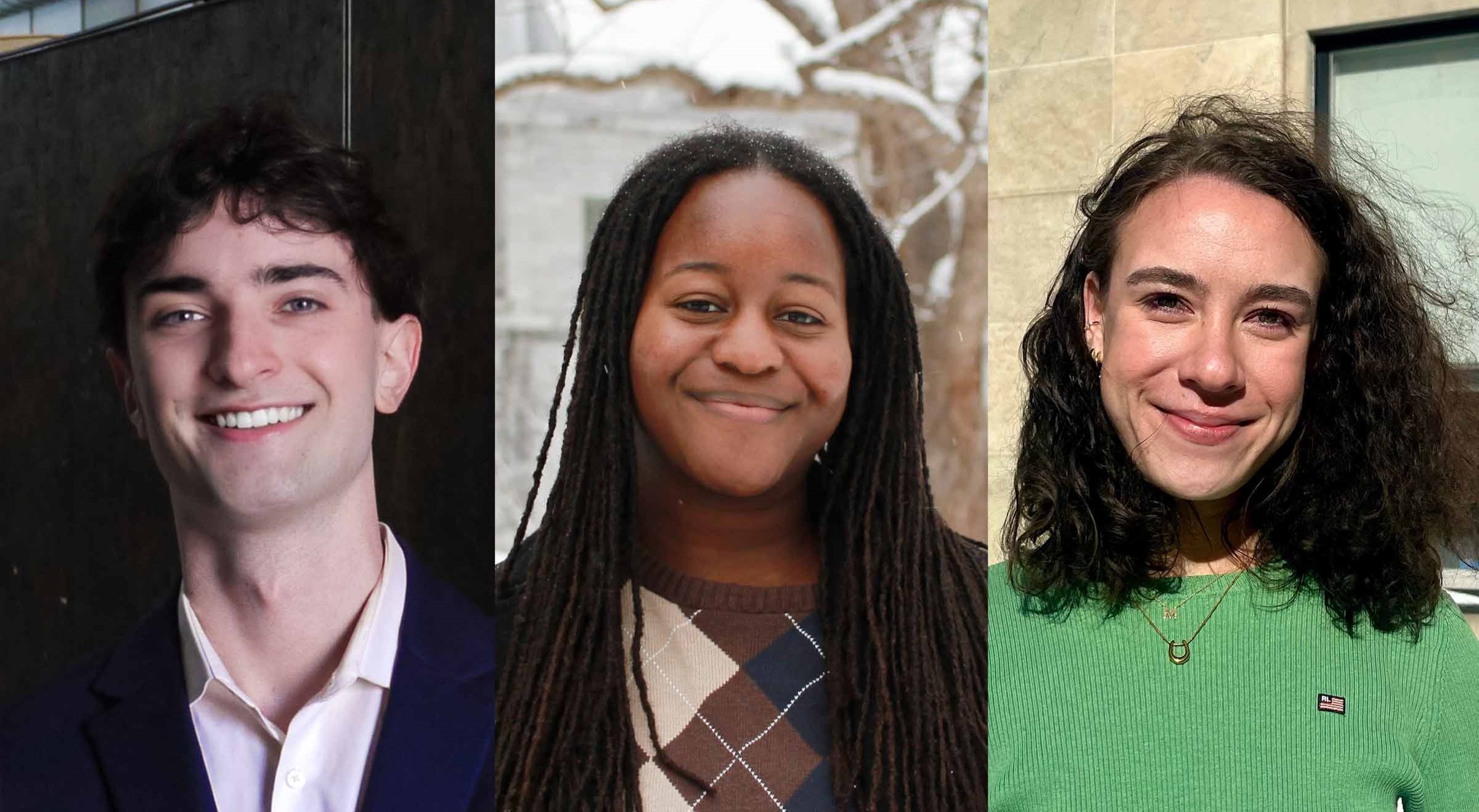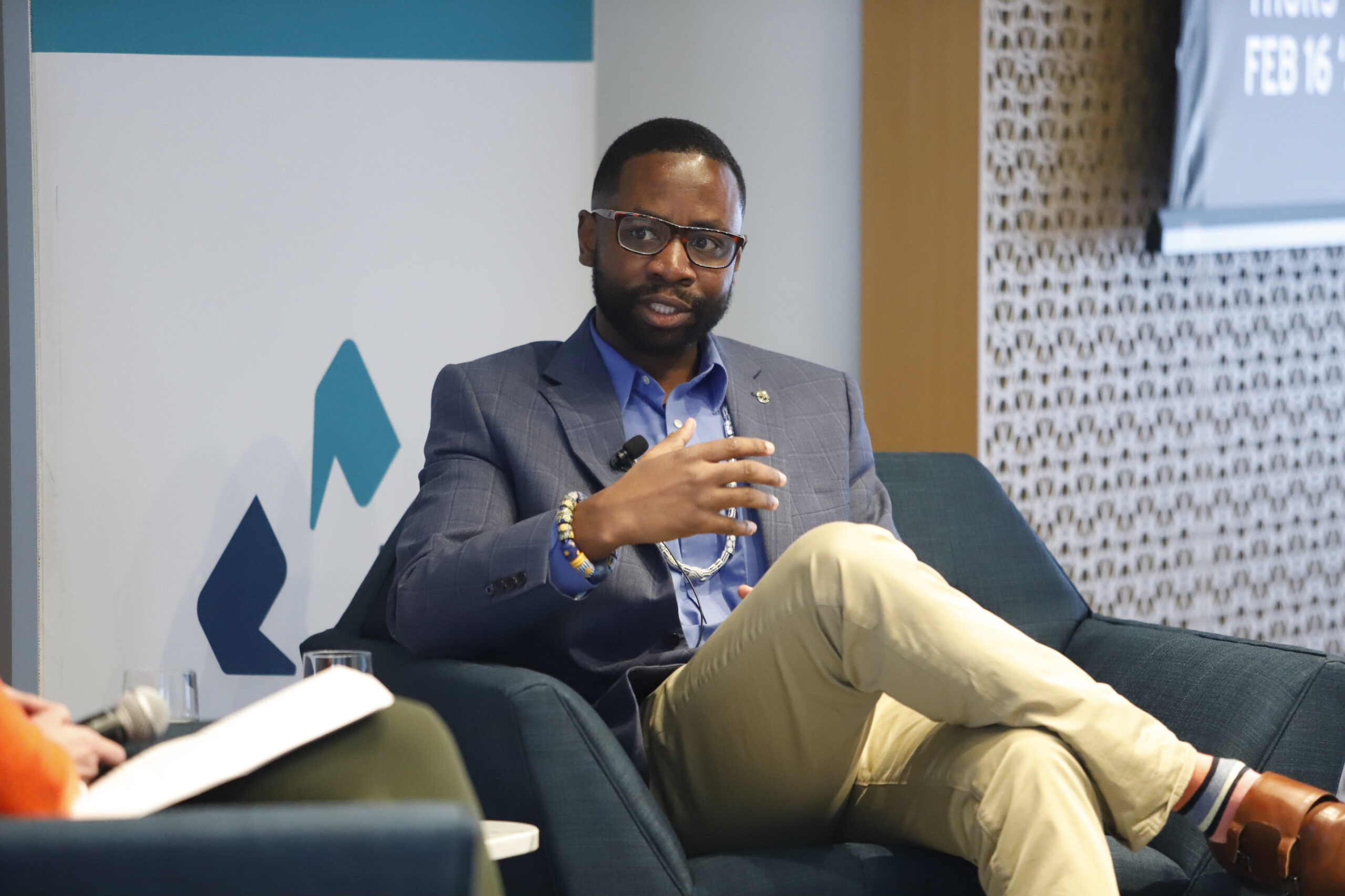
Three students who took HIST 330 come from different backgrounds and have varied goals, but they all agree: not only was the course an engaging experience that exposed them to new narratives and honed their critical thinking skills, it changed how they see the world.
“[The course] really made me re-evaluate my identity as an African Canadian and be even more proud and grateful for what my ancestors have done,” said Tamaya Savage, a second-year Gender, Sexuality, Feminist, and Social Justice Studies and History student who came to Canada from Haiti when she was a toddler. “It enabled me to think more critically about history in general, and about the role of marginalized communities. It really changed my whole worldview.”
Stories untold
HIST 330 is an undergraduate course that delves into a selected theme in Canadian history. For the past two years, it has focused on African-Canadian history, circa 1608 to the 20th century, as taught by award-winning African-Canadian Professor Wendell Nii Laryea Adjetey.
“There is this weird myth that Black people are new to Canada,” said Adjetey. “In fact, Black people were the first diplomats who mediated relations between European settlers and Indigenous nations.”
He said the course demonstrates how Black people played a central role in shaping Canada. It explores how the forms of exploitation they experienced shaped contemporary narratives and race relations. And it highlights the achievements of African Canadians, whose human rights advocacy benefits all Canadians today.
A better understanding of Canada as a whole
“Professor Adjetey teaches us about a legacy that has not been taught about, and provides an impetus to understand the voices of African Canadians,” said Thomas Tudor, a fourth-year Political Science and History student. “This legacy needs to be shared more.”
Tudor, who is from Toronto, a diverse city that he noted has “a vibrant Black community,” said that while he had many Black peers growing up, he had learned little about their community’s history.
He added that before taking HIST 330, he was largely unaware of the contributions of African Canadians like Daniel Hill, for whom his local library in the west end of Toronto was recently named. Hill was a sociologist, community activist and public servant who served as the first Director of the Ontario Human Rights Commission and created Canada’s first human rights consulting firm.
“Learning about this legacy shaped my perspective,” added Tudor. “We learn so many stories that help us better understand Canada as a whole.”
Learning beyond the books
Adjetey exposes students to various sources not usually examined in an undergraduate history classroom.
“Black people were … struggling for survival,” he explained. “So, the historical archive is incomplete, and we try to pull from other spheres to paint as complete a picture as possible.”
Unconventional sources include oral history recordings that testify to otherwise undocumented facets of the Black experience, classified intelligence documents that describe the ways Black communities were subject to surveillance and disrupted, and contemporary readings from disciplines like sociology and political science that examine the impacts of slavery and discrimination on Black communities.
A global perspective

“I was exposed to many Black-Canadian voices whose names I had not heard before,” said Madeleine Fitzgerald, a fourth-year History and Religious Studies student.
For Fitzgerald, who is from Washington, D.C. but holds dual Canadian and American citizenship, the course broadened their perspective both on a personal and an academic level, and dispelled the notion that Canada was morally superior to the United States in its approach to Black people.
“For a lot of Americans and people who are not from Canada, it was an eye-opening course. It helped me understand the connections between Canada and the U.S. and how they formed into the present day,” they explained. “And, academically, it is really important to not just stay pigeon-holed. I tend to take either all my classes about antiquity or the U.S., and this helped me see other information that could be beneficial.”
According to Adjetey, looking beyond borders is important.
“I teach the course from the vantage point that Canada is not just some isolated outpost of the former British Empire,” he explained. “Canada is significant to the U.S. Canada is significant in terms of the global African Diaspora. Black people from all over the world have looked to Canada in terms of imagining freedom and how they have struggled to achieve it.”
Room to grow
Students report that Adjetey presents his material in an impactful and moving manner and provides discussions and assignments that encourage them to think critically about how the past has shaped the present.
According to Fitzgerald, the opportunity to engage in discussions and the unusual, thought-provoking assignments – their favourite required students to independently watch a documentary and incorporate concepts from readings and lectures to produce an analytical essay – offers a rich opportunity for learning and growth.
For Savage, who also credited HIST 330 with honing her essay-writing skills by encouraging critical thinking, learning about the resilience of Black communities and the great contributions of African Canadians served as inspiration to pursue her dreams.
“I was constantly encouraged to think outside of my comfort zone, so I was able to really dive into what it meant to be an African Canadian in the past and to explore what it means to be one in the future,” says Savage. “This course made me even more confident in the career path I want to take: I would like to work with marginalized communities in a capacity where I am uplifting them. I would love to be a part of other African Canadians’ journeys of success. I think that would just be amazing.”
